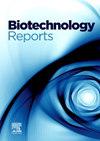探讨复苏促进因素在结核病中的多方面作用:对诊断、疫苗开发和药物靶向的影响
Q1 Immunology and Microbiology
引用次数: 0
摘要
结核病(TB)仍然是一个重大的全球健康挑战,需要持续的研究努力来揭示其复杂的发病机制,并推进诊断、治疗和预防策略。复苏促进因子(Rpfs)是肽聚糖水解酶,因其在结核感染动力学中的关键作用而受到关注。本综述旨在全面概述Rpfs在结核病中的作用,强调它们的免疫学作用、诊断潜力,以及通过计算机和实验方法对疫苗开发和药物靶向的影响。Rpfs在结核病中表现出多种作用,影响细菌从休眠中复苏,并通过与宿主免疫细胞(如树突状细胞)的相互作用进行免疫调节,它们是新型诊断和治疗干预措施的潜在靶点。它们刺激免疫反应的能力,特别是T细胞产生干扰素γ的能力,强调了它们作为结核病候选疫苗的潜力。此外,Rpfs代表了药物发现的有希望的靶点,抑制剂可能会破坏细菌的复苏和生长。本文章由计算机程序翻译,如有差异,请以英文原文为准。

Exploring the multifaceted roles of resuscitation-promoting factors in tuberculosis: Implications for diagnosis, vaccine development, and drug targeting
Tuberculosis (TB) remains a significant global health challenge, necessitating continued research efforts to unravel its complex pathogenesis and advance diagnostic, therapeutic, and preventive strategies. Resuscitation-promoting factors (Rpfs) are peptidoglycan-hydrolyzing enzymes that have gained attention due to their key roles in TB infection dynamics. This review aims to provide a comprehensive overview of Rpfs in TB, highlighting their immunological roles, diagnostic potential, and implications for vaccine development and drug targeting through both in silico and experimental approaches. Rpfs exhibit diverse roles in TB, influencing bacterial resuscitation from dormancy, and immune modulation through interactions with host immune cells, such as dendritic cells, and they are potential targets for novel diagnostic and therapeutic interventions. Their ability to stimulate immune responses, particularly interferon-γ production by T cells, underscores their potential as vaccine candidates against TB. Moreover, Rpfs represent promising targets for drug discovery, with inhibitors potentially disrupting bacterial resuscitation and growth.
求助全文
通过发布文献求助,成功后即可免费获取论文全文。
去求助
来源期刊

Biotechnology Reports
Immunology and Microbiology-Applied Microbiology and Biotechnology
CiteScore
15.80
自引率
0.00%
发文量
79
审稿时长
55 days
期刊介绍:
Biotechnology Reports covers all aspects of Biotechnology particularly those reports that are useful and informative and that will be of value to other researchers in related fields. Biotechnology Reports loves ground breaking science, but will also accept good science that can be of use to the biotechnology community. The journal maintains a high quality peer review where submissions are considered on the basis of scientific validity and technical quality. Acceptable paper types are research articles (short or full communications), methods, mini-reviews, and commentaries in the following areas: Healthcare and pharmaceutical biotechnology Agricultural and food biotechnology Environmental biotechnology Molecular biology, cell and tissue engineering and synthetic biology Industrial biotechnology, biofuels and bioenergy Nanobiotechnology Bioinformatics & systems biology New processes and products in biotechnology, bioprocess engineering.
 求助内容:
求助内容: 应助结果提醒方式:
应助结果提醒方式:


